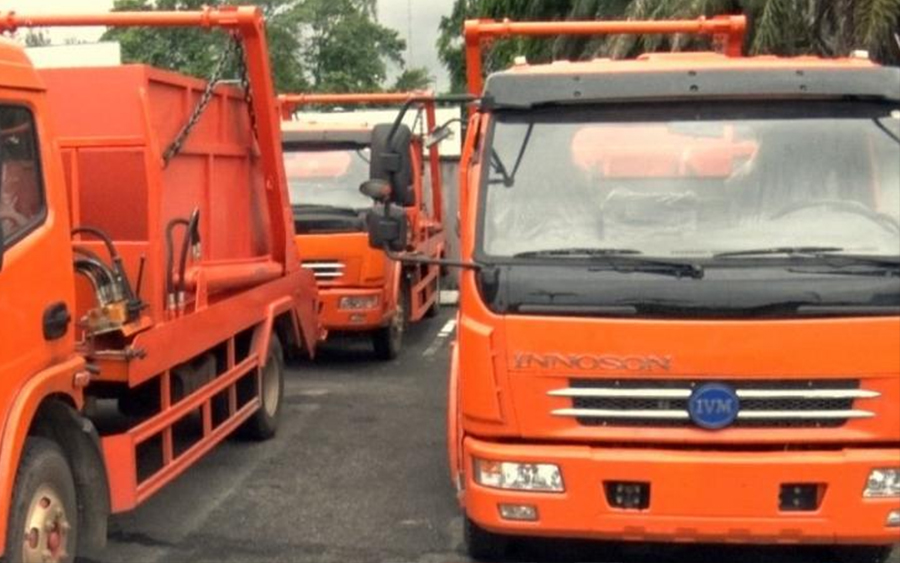Nigeria’s auto industry stands at a critical juncture, full of untapped potential but grappling with structural imbalances.
Once thriving in the 1960s and 1970s due to strong government backing, the sector’s trajectory was altered by privatization in the 1980s, leading to a steep decline in local vehicle production.
According to the former Minister of Trade, Industry and Investment, Doris Uzoka-Anite, the industry contributes only 0.04% to the country’s GDP, despite having the capacity to contribute up to 25%.
The minister also noted that while only about 10,000 people are currently employed in the sector, the industry could employ up to 300,000 Nigerians if adequately revived.
According to Nairametrics, Nigeria imported N546.79 billion worth of vehicles in 2020, which increased to N695.40 billion in 2021. However, imports declined slightly to N655.69 billion in 2022 before soaring by 124.7% to N1.47 trillion in 2023, fueled by increased demand and inventory buildup by auto dealers.
In 2024, imported cars saw a sharp 14.3% drop to N1.26 trillion, a reversal of the previous year’s boom, reflecting the deepening impact of economic instability on consumer spending.
The gap between vehicle demand and local production is an area of concern. Reports from the International Trade Administration indicate that Nigeria needs about 720,000 vehicles annually, but domestic assemblers can only supply 14,000 units, leaving the country heavily reliant on used imports.
Against this backdrop, a number of companies are making bold moves to restore Nigeria’s automotive legacy.
Here are the key players driving Nigeria’s vehicle assembly industry:

Founder, Aliko Dangote
Dangote Peugeot Automobiles Nigeria(DPAN) is the product of a joint venture led by Nigerian billionaire Aliko Dangote, through Dangote Industries Limited, in partnership with the Stellantis Group, the global parent of Peugeot, and the Kaduna, Plateau, and Kebbi State Governments.
From 2016, Dangote Group took control of the former Peugeot Automobiles Nigeria (PAN), relaunching local assembly operations under Nigerian leadership with Stellantis providing technical direction and state governments ensuring regional support and equity.
DPAN officially commenced operations in 2022, when its new Greenfield Ultima Assembly Plant in Kaduna began rolling out locally assembled Peugeot models, restarting national production of the Peugeot brand in Nigeria.
Sales, administration, and after-sales operations are managed from Kaduna, and the overall ownership and strategic oversight reside with Dangote Industries in collaboration with partner states and Stellantis.
The Kaduna plant assembles a growing range of Peugeot models for the Nigerian and West African markets, including the Peugeot 301 sedan, the Landtrek mid-size pickup, the 3008 SUV and its sporty GT variant, the seven-seater 5008 SUV, and the premium Peugeot 508, which was the most recent addition to the local lineup.
As of February 2025, DPAN utilizes its facility to assemble 120 vehicles daily and 44,000 per annum.
Ibrahim Isa Gachi is the Managing Director of Dangote Peugeot Automobiles Nigeria Limited (DPAN).























Happy Sunday to everyone else,
Iet continue keep things right.
I really doubt if the increase seen in 2023 is due to increase demand.
This report was done in Naira. Exchange rate jumped from 450 to 1600 in that same period.
If same volume and types of vehicles bought in 2020-2022 was bought in 2023, you will certainly see the increase described in Naira terms.
We also need Agriculture farm tractors, machines and equipment.
These are area of importance to Nigeria economy and with time better and suffiscated cars will be manufactured here in our country and that will put an end to our importation of car
Nigeria is poor because we import practically everything: we import used foreign vehicles, we import expired rice, we import used clothing, we import toothpicks,… When we import, we lose jobs and foreign currency.
Massive imports also create inflation. For example, imagine you have $4 billion in reserves from crude oil and spend $3 billion on imports, leaving you with only $1 billion left. This causes the exchange rate to depreciate, and if that happens, imports become expensive
Nigeria has many vehicle manufacturers, such as Innoson Vehicles, Nord Motion, Roxettes Motors, Egoras Auto, EMVC, Lanre Shittu Motors, Jet Motors, ANAMMCO, NEV Electric, etc. But most Nigerians prefer foreign brands.
What Nigeria should do is ban foreign used vehicles and impose a 100% tariff on imported new vehicles.